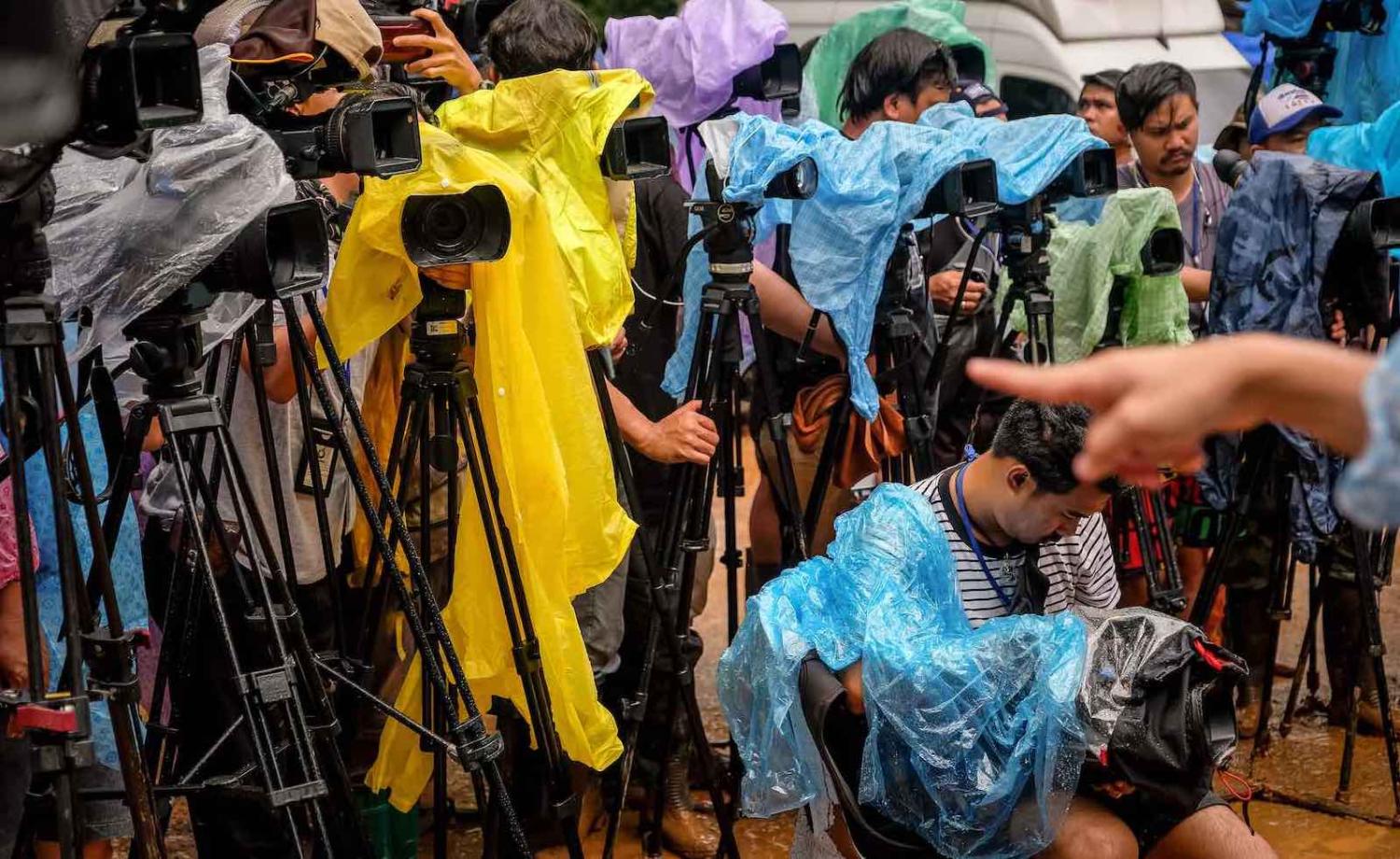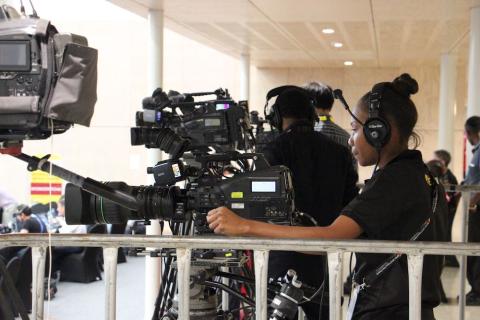Australia’s international voice, once strong, influential and broadcast across much of the Asia-Pacific, has become little more than a croak into the ether.
Substantial cuts to funding, waning government commitment, changing national priorities, and digital disruption have resulted in Australia becoming something akin to a fringe broadcaster at a time when our region faces sweeping geopolitical, social, economic, and environmental challenges.
‘Soft power’ of this kind is also a useful counter to hostile propaganda, inaccurate reporting, and extremist rhetoric capable of harming not only the reputation of Australia and its people but also their livelihoods.
Despite punishing financial and staffing “efficiencies”, particularly since 2014, the national broadcaster still manages to transmit a 24/7 digital multi-platform international service (radio, television, and online) to the region. But the ABC’s role, impact, and commitment to international audiences has been diminishing for two decades now, and markedly so in recent years.
The model that has sustained almost 80 years of Australian international broadcasting is no longer up to the task, and its effectiveness – as prescribed by the ABC Charter – must now be seriously questioned. Our ability to project a vision of ourselves to the Asia-Pacific region has undeniably diminished with the decline of the ABC’s international service.
The Australian Government is currently in the midst of a Review of Australian Broadcasting Services in the Asia-Pacific which is assessing the reach and effectiveness of Australia’s media in the region. Some submissions to this review will argue for additional funds to be made available to the ABC as a means of rejuvenating and enlarging its now-modest international broadcasting effort.
We submit that pumping additional new money into the ABC to lift its game in this field is a “back to the future” strategy that fails to recognise the opportunities offered by a new, more nimble approach drawing on the very best that Australia and Australians have to offer.
It is now widely accepted and argued by foreign relations exponents, as well as by experienced broadcast professionals, that, done well, state-funded international broadcasting is an efficient and effective way to shape long-term attitudes and preferences in the region through positive attraction and persuasion.
We would add that “soft power” of this kind is also a useful counter to hostile propaganda, inaccurate reporting, and extremist rhetoric capable of harming not only the reputation of Australia and its people but also their livelihoods.
However, rather than retain responsibility for Australia’s international voice within the ABC, we believe Australia’s future international public broadcasting activities should be placed in the hands of an independent corporation or foundation that would better reflect the plurality of views and opinions that shape Australia – not only those captured by the ABC.
While we acknowledge the depth of international broadcasting expertise developed by the ABC over many decades, we argue that the commercial media and independent production sector are also well placed to provide a range of dedicated, bespoke programming for Asia-Pacific audiences, and that the bulk of any new public funding must be contestable.
Under the current model, Australia has surrendered much of the hard-won broadcasting territory and influence it once held across the region. Other countries have moved in to occupy the space. We believe that without a new model and a new approach, Australia will simply fall further behind its rivals, and any voice we hope to project will be less a roar than a whimper.
The new model we propose is based on the following criteria:
- An international broadcasting service operated by an independent, statutory corporation or foundation with a long-term strategy and vision (not focused on short-term expediency or “quick fixes”).
- A service operating to a charter, based on bipartisan political agreement and supported by business and other sectors, which clearly states that the mission of future Australian international broadcasting is to target and influence international audiences (rather than Australian expatriates).
- A charter directing corporation or foundation to produce and broadcast high-quality, independent, contextualised, and trustworthy news, information, and entertainment programs for Asia-Pacific audiences via multiple digital delivery platforms.
- Programming content that explains and reflects contemporary Australia and its people, their multicultural way of life, democratic values, and institutions, as well as everyday realities, including culture, education, and sport.
- The corporation or foundation to be quarantined from day-to-day partisan political and funding pressures that have thwarted efforts to produce a consistent, compelling, and trusted narrative of Australia for its Asia-Pacific neighbours.
- Guaranteed annual government funding in order to deliver on the charter obligations.
- No dependence on revenue from advertising, sponsorship, or promotions, but the ability, over time, to attract tax-exempt endowments from public and private benefactors, including high–net worth individuals, foundations, NGOs, and others with a proven commitment to Australia’s national interest and place in the world.
- The corporation or foundation chairperson to be an eminent and suitably experienced individual.
- The board to comprise high-ranking nominees from the ABC, SBS, the Australian Government, commercial media, independent producers, business, educators, the tourism sector, and others with relevant skills and experience.
- News and current affairs programming to be produced in close association with the ABC and SBS, given their acknowledged expertise in foreign reporting and languages, but also drawing on commercial news sources where appropriate, and all while adhering to the highest editorial principles, ethical standards, and practices of independence, balance, and accuracy.
- A sufficient commissioning fund to enable the new corporation or foundation to buy compelling, relevant, bespoke TV, radio and online content in such genres as general entertainment, children’s education, health, social welfare, music, culture, English language learning, and sports. This non-news programming to be sourced from independent producers and commercial broadcasters, as well the ABC and SBS.
- The new international service not to be beholden to any one form of technology; instead retaining the flexibility to leverage changing technology options for optimum outcomes. Different markets require different technology solutions, so the new approach must involve a market-by-market strategy, not a one-size-fits-all approach.
- The new corporation or foundation to have a strong commitment to regular research, not only to record audience data, market characteristics, and digital consumption trends but also to measure the effectiveness (reach and relevance) of all its programming.
- The new corporation or foundation to adopt branding that best represents what Australia’s new regional voice is all about, and the audiences it is addressing.
This independent model provides for a level of flexibility and efficiency that would guarantee the service was well-placed to utilise the wide variety of digital platforms accessible by current and future audiences.
It also ensures that any significant injection of new public funding into international broadcasting would not automatically go to the ABC, but would be contestable by the public broadcasters, the commercial media sector, and independent production houses.
And our proposed model allows Australia to choose how it can best develop a commanding international voice capable of engaging and informing Asia-Pacific audiences today and well into the future.
Australia should not be allowed to fall any further behind.
This article draws on a submission by the authors to the review of Australian broadcasting services.

